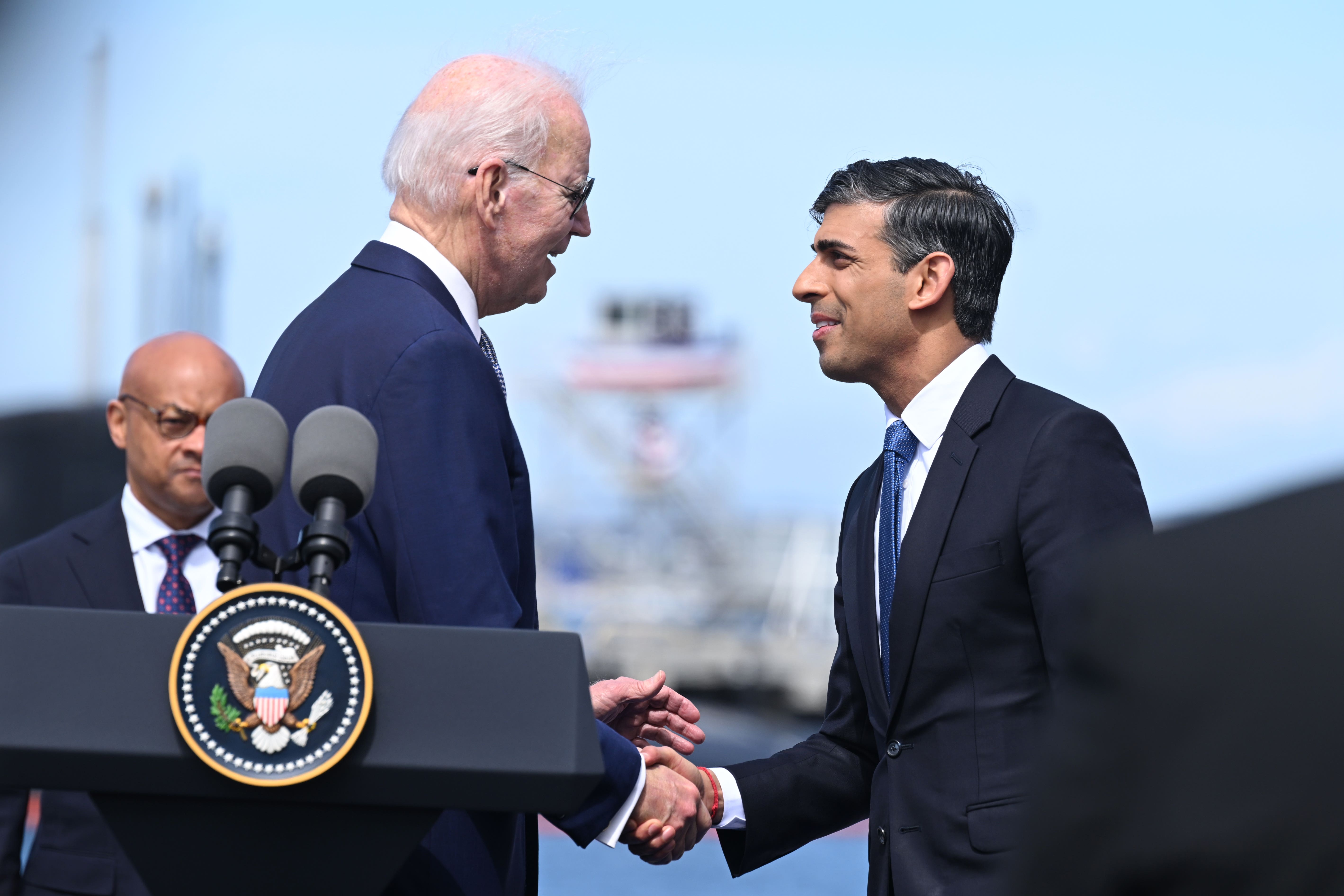Can Sunak soften Biden up on a post-Brexit trade deal?
UK officials will have to settle for ‘mini-deal’ negotiations with Utah, Texas and other states at talks in Washington this week. Adam Forrest looks at whether the PM can win the president over to the merits of free trade


Rishi Sunak loves America. In fact, the former Californian resident’s love runs so deep it landed him in trouble – forced to explain last year why he had held a US green card while UK chancellor.
Mr Sunak is now hoping his close ties stateside can start to pay off. The Americans are rolling out the red carpet for the prime minister’s visit to Washington DC this week. He will stay at Blair House, also known as the President’s Guest House – the first British PM to be invited to stay there since David Cameron.
Mr Sunak has evidently charmed Joe Biden during recent meetings, managing to dispel some of the transatlantic tensions seen when Boris Johnson and Liz Truss occupied No 10.
The president seems to get a kick out of the fact that the PM studied in California and still has a house in Santa Monica – teasing him about being “Stanford man” during a press conference on closer military ties in March.
If the sparks of the special relationship are being rekindled, might the White House finally warm up to the idea of a post-Brexit trade deal? Washington has remained distinctly cool on new trade arrangements pushed by Mr Johnson, who boasted that the UK would surely be “first in line” for a US deal after leaving the EU.
Trade talks are not on the agenda for this week, despite Mr Sunak’s success in (partially) resolving the row over the Northern Ireland protocol. Ending the dispute with the EU and upholding the Good Friday Agreement were viewed as the very least “the Brits” (as Mr Biden likes to say) could do before the trade deal could possibly be back on the table.
The Americans may not believe a line can be drawn under the episode until powersharing is restored at Stormont. But Sunak has not given up on forging close ties with the US, with a comprehensive free trade agreement the major prize eyed by Brexiteers.
His government has been chasing economic pacts with individual states, and British officials are due to hold talks with Utah, Oklahoma, Texas and California representatives this week.
Ministers were mocked over the first “mini” economic agreement signed with the state of Indiana last year, before similar pacts with North and South Carolina. But the government has hailed such deals – which streamline rules around procurement contracts and professional qualifications – as a boost to British firms.
Whitehall officials are hoping the small stuff can help open up negotiations on big stuff at a national level, whenever Washington is ready. But a major problem remains: the Biden administration is not prioritising new trade deals and does not appear interested in eliminating tariff barriers.
In fact, both the UK and US have been angered by the “protectionist” approach taken by Mr Biden as his landmark Inflation Reduction Act offers billions in subsidies to American firms to invest in green infrastructure, concerned about how European companies will possibly be able to compete.
No 10 said the two countries would talk about enhancing “cooperation and coordination” on supply chains and moving to zero carbon. But there is little sign of a new approach to free trade.
Still, it remains a big week ahead for the jet-setting PM. Mr Biden and Mr Sunak are set to discuss Ukraine and energy security. Mr Biden has also bestowed the rare honour of a joint press conference – one of the few such events the president has carried out this year.
Sunak will get to relax by watching a baseball game as part of “UK-US Friendship Day”. There is talk of the PM playing a ceremonial role – possibly even throwing out the first pitch, a special ritual usually reserved for US politicians.




Join our commenting forum
Join thought-provoking conversations, follow other Independent readers and see their replies
Comments